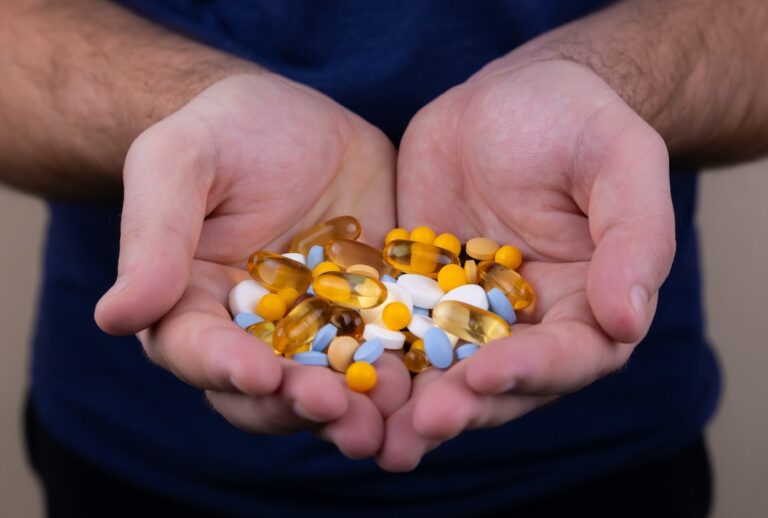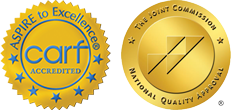When you think of drug abuse, the drugs that typically come to mind are illicit substances like heroin and cocaine. These are illegal drugs that have no authorized medical use. Then what’s the need for a prescription drug addiction treatment center Washington you might think? The reason is that another equally dangerous type of addiction is an addiction to prescription drugs. These are medications that have valid medical uses. However, some people use them in a way not intended by the prescribing physician. Such individuals oftentimes do not realize the danger of misusing the medications because they think they are using a medication that is approved by the medical community. However, what they do not realize is that the medication is addictive and they may end up needing help at a prescription drug addiction treatment center Washington.
Prescription drug abuse can be anything from using a family member’s prescription painkiller to obtaining oxy from a street dealer to get high. With time, the repeated misuse or abuse of prescription medications becomes compulsive and can lead to a host of negative consequences. However, assistance can be sought at a prescription drug addiction treatment center. In this article, we will discuss the effects of prescription drug abuse, the risk factors, the types of prescription drugs that are commonly abused, and what medications are available to tackle addiction.
In this article, we discuss:
- What are Prescription Drugs?
- Why Do People Abuse Prescription Drugs?
- Which Prescription Drugs Are Commonly Abused?
- Opioid Drug Abuse
- Sedative Drug Abuse
- Prescription Stimulant Drug Abuse
- Risk Factors of Prescription Drug Abuse
- Is There Treatment for Prescription Drug Addiction?
- Finding the Right Prescription Drug Addiction Treatment Center
What are Prescription Drugs?
Prescription drugs are medicines prescribed by doctors to treat physical and mental health problems. When taken in the prescribed doses, these drugs or medicines can help individuals feel better. But when these are misused and not taken as directed by doctors, they can be harmful and even result in addiction, which can cause medical problems.
When prescription drugs are used for non-medical reasons to the point of abuse, they can cause chemical imbalances in the brain. These changes in the brain can affect self-control mechanisms and cause an individual to consume these drugs in higher doses. In 2021, it was reported that approximately 6% of the American population took prescription drugs for non-medical use.
Why Do People Abuse Prescription Drugs?
People abuse prescription drugs for a variety of reasons, such as to have fun, seek pleasure, achieve an altered state of consciousness, lose weight, fit in with their peers, cope with stress or anxiety, or even study more effectively.
Some people even use these and over-the-counter drugs because they think these are an easy alternative to illegal drugs purveyed by street peddlers and that they will not be harmful. However, they forget that prescription drug use is only safe as long as these drugs are taken in the doctor’s recommended doses for health conditions. The doctor can provide the right instructions and also monitor the health effects during the prescribed course.
Which Prescription Drugs Are Commonly Abused?
According to the National Institute on Drug Abuse, three classes of prescription drugs are commonly abused. These are:
Opioids
Prescription opioids are used to relieve pain, cough, and even diarrhea. Since the early 1990s, a large number of opioid prescriptions have been written for drugs such as codeine, hydrocodone, morphine (Astramorph, Avinza, Kadian, MS Contin, Oramorph SR), and oxycodone (OxyContin, Percocet, Vicodin). This is due to the fact that the aging population in the US has increased rapidly, and there is a growing number of people living with long-term pain.
While these drugs work well to manage and alleviate pain, taking them in accordance with the doctor’s prescription is essential. It’s uncommon that taking opioids for a short time under a physician’s guidance will lead to abuse, but if they’re taken for a longer duration, the possibility of dependence and addiction cannot be ruled out. Opioid overdose can be fatal if you take these drugs with other drugs like alcohol, barbiturates, or benzodiazepines such as alprazolam (Xanax), clonazepam (Klonopin), or diazepam (Valium). Opioids can cause a feeling of ‘high,’ so some people tend to use them illegally. They might snort or inject these drugs to induce that feeling. Injecting opioids can put individuals at risk of diseases like HIV and hepatitis C.
Central Nervous System (CNS) Depressants
These drugs treat anxiety, tension, panic attacks, and sleep disorders. There are millions of people in the US who use benzodiazepines (Ativan, Valium, Xanax) to deal with anxiety and sleep disorders, such as insomnia. CNS depressants work on a chemical in your brain called GABA (gamma-aminobutyric acid), which lowers brain activity and makes you feel calm or sleepy. There are other drugs known as barbiturates, which include amobarbital (Amytal), pentobarbital (Nembutal), phenobarbital (Luminal), and secobarbital (Seconal), that doctors use for anesthesia and to treat seizures.
Use of CNS depressants for a short duration, such as a few days or weeks, may make you feel calm and relaxed, but if you use them for prolonged periods, you will need to take larger doses to get the same feeling. Pairing them with alcohol slows down heartbeat and breathing and can lead to death. If you consume CNS depressants for a long time and stop suddenly, it can be life-threatening and result in severe problems like withdrawal seizures.
Stimulants
These drugs are used to treat narcolepsy and ADHD. They offer a substantial boost in alertness, energy, and attention. Stimulants are known to raise the heart rate, blood sugar, and blood pressure, as well as narrow blood vessels and open airways. These drugs were initially used by doctors to treat asthma and obesity, but today, they are prescribed for conditions like ADD and depression other than narcolepsy and ADHD. Some stimulants are dextroamphetamine (Dexedrine, Dextrostat, ProCentra), lisdexamfetamine (Vyvanse), methylphenidate (Concerta, Daytrana, Methylin, Ritalin), and a mix of amphetamine and dextroamphetamine (Adderall).
If stimulants are abused by consuming them in higher doses or crushing pills and snorting them, they can result in addiction. High doses are also linked to increased body temperature. When paired with decongestants, stimulants may cause your heartbeat to become irregular.
Opioid Drug Abuse
Opioids are prescription medications that are used to treat moderate to severe pain. They include drugs like Oxycontin and Percocet which contain oxycodone as well as Norco and Vicodin which contain hydrocodone. Opioid abuse has reached epidemic proportions in the United States. An estimated 128 people die every day from an opioid overdose. A prescription drug addiction treatment center Washington can treat addiction to all kinds of opioids, including prescription pain relievers, fentanyl, and the illegal drug heroin.
The clinical team at Discover Recovery prescription drug addiction treatment center Washington sees many patients with opioid addiction. The most common signs and symptoms of opioid abuse include euphoria, nausea, constipation, confusion, drowsiness, and poor coordination. Also, people who misuse opioid pain relievers to self-manage their pain often need an increasing dose for pain relief. They may also experience hyperalgesia (increased pain sensitivity) at high doses. These are all symptoms that can be treated at a prescription drug addiction treatment center Washington.
Do you have a loved one struggling with addiction?
We know how hard that can be. Give us a call to find out what options you have.
The two main ways in which opioid abuse is treated at a prescription drug addiction treatment center Washington are medications and behavioral therapies. Medications such as methadone, buprenorphine, and naltrexone are used at a prescription drug addiction treatment center Washington to relieve cravings and withdrawal symptoms or to prevent opioids from affecting the brain. These medications are usually administered in combination with behavioral counseling. Behavioral therapies at a prescription drug addiction treatment center Washington help the patients change unhealthy behavior and thinking patterns and thereby reduce or stop drug use. During therapy, patients also learn coping strategies to manage triggers and cravings that can lead to relapse. Some types of therapies provide incentives to patients to stay abstinent.
Sedative Drug Abuse
Certain sedatives and tranquilizers have the potential for abuse and addiction. These medications are CNS (central nervous system) depressants, meaning they slow down brain activity. Examples include Xanax (alprazolam) and Valium (diazepam) as well as hypnotic drugs like Ambien (zolpidem). Some of these medications are commonly prescribed to treat sleep problems and anxiety. However, people can develop a dependence on them and require help at a prescription drug addiction treatment center Washington to quit.
The signs and symptoms of anxiety medication abuse that are often noted at a prescription drug addiction treatment center Washington include drowsiness, dizziness, slowed breathing, slurred speech, unsteady gait, memory problems, and problems concentrating.
If a person has become dependent on anti-anxiety sedative-hypnotics, it’s important to seek care at a prescription drug addiction treatment center Washington promptly. Attempting to quit taking the drugs at home can be dangerous. The withdrawal symptoms can be severe and potentially life-threatening. A medically supervised detox at a prescription drug addiction treatment center Washington will ensure that the dose is reduced gradually and safely. At the same time, counseling can help patients modify their thinking and behavior and develop skills to cope with life stressors without drugs. Unlike opioids for which there are several addiction treatment medications available, there is currently no FDA-approved medication to treat addiction to anti-anxiety medications.
Prescription Stimulant Drug Abuse
Prescription stimulants include drugs like Concerta, Ritalin, and Adderall. These medications are prescribed to treat medical conditions such as narcolepsy (a sleep disorder) and ADHD (attention deficit hyperactivity disorder). However, a prescription drug addiction treatment center Washington often treats patients who have developed a dependence on these drugs.
Signs and symptoms of stimulant abuse and addiction include euphoria, increased alertness, increased body temperature and blood pressure, decreased appetite, agitation, anxiety, and insomnia. These are all symptoms that can be treated at a prescription drug addiction treatment center Washington. The important thing is to get help as soon as possible.
The treatment modalities used at a prescription drug addiction treatment center Washington for Adderall abuse are similar to those used for cocaine and meth which are also stimulant drugs. At present, there are no specific FDA-approved medications for prescription stimulant abuse. Treatment usually consists of gradually tapering the dose and managing withdrawal symptoms during medical detox. This is followed by behavioral therapies at a prescription drug addiction treatment center Washington to reduce the risk of relapse.
Risk Factors of Prescription Drug Abuse
Prescription drugs can cause physical dependence and addiction if not taken in doses prescribed by your doctor. While dependence can occur even at therapeutic levels, following your doctor’s orders regarding the dose, frequency, and duration can keep you safe from getting addicted. It’s also important that these drugs are only administered in the right form and not crushed and then snorted, injected, or used in another way. Research has shown that some factors can make an individual susceptible to the misuse of prescription drugs, such as:
- Influence of friends or colleagues
- Age and gender
- Biological make-up or genes
- Mental health issues like PTSD, depression, or anxiety
- A lack of knowledge about prescription drugs and how they can harm you
- Certain physical health problems like chronic fatigue and headaches
- A history of substance abuse
Is There Treatment for Prescription Drug Addiction?
To treat opioid addiction, there are medications available that help control it without putting you at risk of getting addicted. One such medication is buprenorphine, which is often combined with naloxone (called Bunavail, Suboxone, or Zubsolv) to manage opiate withdrawal and prevent relapse. There’s another form of buprenorphine called Probuphine, which is implanted under the skin to provide the body with a steady dose for six months. One more option of a monthly shot is also available called Sublocade.
Other treatments for opiate withdrawal include methadone, clonidine, and naltrexone, which can be taken as a pill (Revia) or a monthly injection (Vivitrol). These block the effects of opioids and help with relapse prevention. Doctors recommend having naloxone at hand to reverse overdose in case it occurs. For opioid addiction, experts will recommend using a combination of medication-assisted treatment and cognitive behavioral therapy (CBT), while counseling is commonly recommended for other drug addictions. Sometimes, doctors might even advise you to detoxify your body under the supervision and care of healthcare providers.
Finding the Right Prescription Drug Addiction Treatment Center
The right prescription drug addiction treatment center will offer a range of drug rehab programs with multiple levels of care to meet the needs of each client. Their approach will be a holistic one, meaning that in addition to treating your physical dependence on prescription medications, they will also focus on the psychological and social factors that led to the dependence in the first place.
A highly experienced clinical team at a prescription drug addiction treatment center consists of board-certified physicians with a specialization in addiction medicine, masters-level counselors, and registered nurses. Their goal is to provide a safe and supportive environment to you in which you can heal and leave drug abuse behind you forever.
If you or a loved one is in need of medical detox and behavioral therapies at a prescription drug addiction treatment center, get in touch with us at Discover Recovery today, and let’s talk about getting you back on track for a happy, healthy future.





